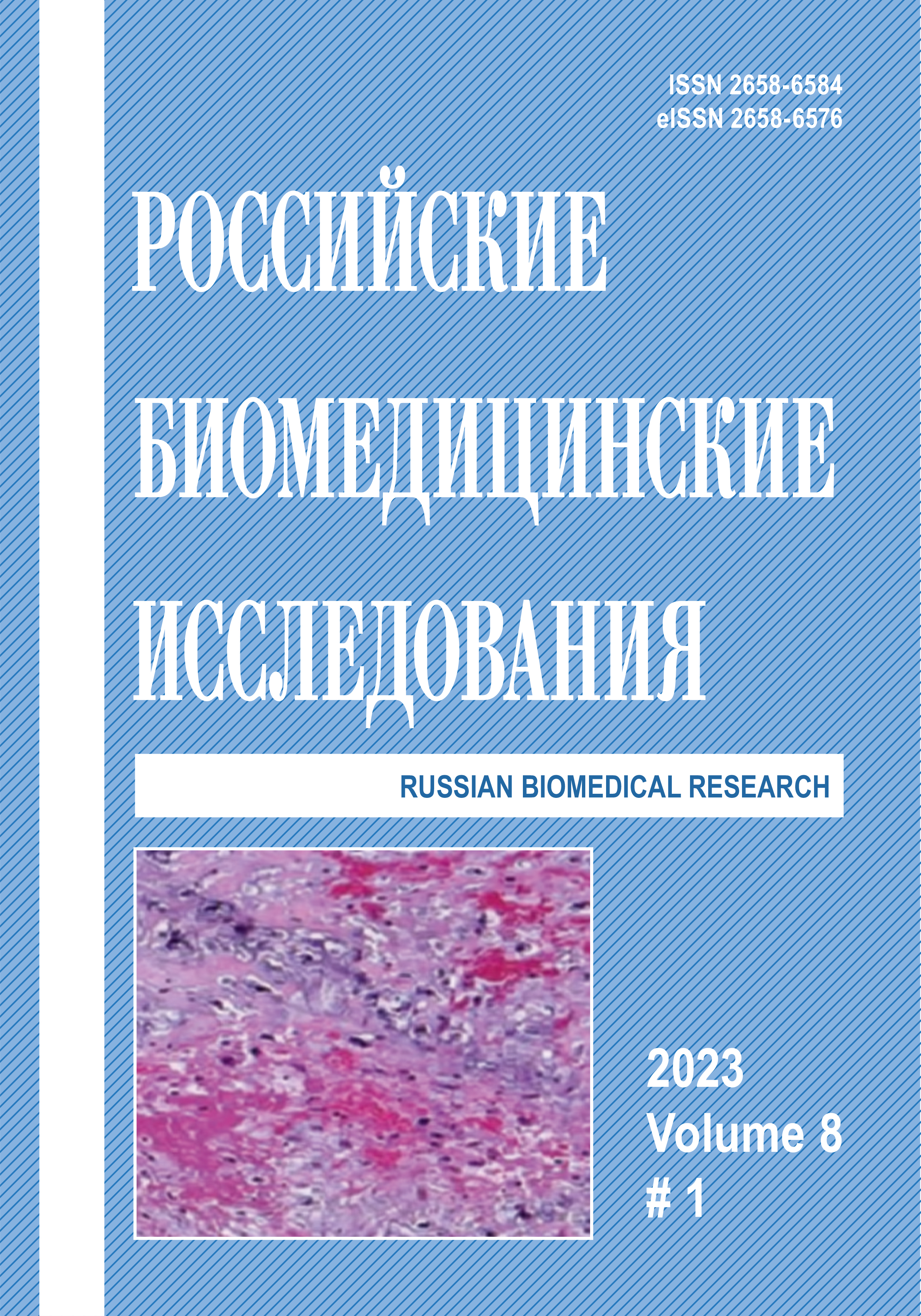INFLUENCE OF PEPTIDE BIOREGULATORS ON THE RESISTANCE OF THE ORGANISM OF RATS UNDER SIMULATION OF COLD-STRESS DISADAPTATION
Abstract
Background. Biologically active regulatory peptides (RPs) are the drugs of new type that act selectively on targets, with having no significant side effects. The aim of the study was to investigate the potential effect of the peptide preparations Cortexin and Semax on the resistance of rats, being exposed to simulated cold-stress maladaptation. Materials and methods. White outbred male rats were injected intraperitoneally twice daily with placebo (n = 30), Cortexin 5 mg/kg (n = 30) or Semax 0.3 mg/kg (n = 30). Three days after the start of the injection course, the cold-stress effect was simulated in the climate chamber (Feutron, Germany) by cooling the air to 5 °C at a relative humidity of 75–80 %. Results. The use of RP significantly increased the duration of the rectal temperature plateau-period within 35 °C (moderate hypothermia): in animals of the Cortexin group from 10 days to 12 days, and in animals of the Semax group, from 10 to 14 days. Cortexin demonstrated moderate immunomodulatory properties, and Semax had a more pronounced immunomodulatory effect. Both preparations showed a stress-protective effect. The use of RP provided to delay the decrease in the rat general motor activity and exploratory behavior which develops under the influence of a simulated cold-stress factor. A slower rate of decrease in the swimming time of rats under the influence of RP was registrated. Conclusion. The meteoadaptogenic, stress-protective and nootropic effect of regulatory peptides, primarily Semax, was confirmed in rats on a model of cold-stress exposure.
Copyright (c) 2023 Russian Biomedical Research

This work is licensed under a Creative Commons Attribution 4.0 International License.



